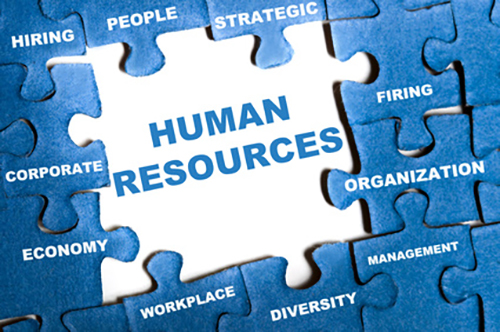There is possibly no more discussed topic in the Human Resources world than “getting a seat at the table” or “becoming a strategic business partner,” (can be said in other ways as well) which essentially means “being thought to add value to the organization.” I have a whole category about this on my blog, and I’ve written about issues within HR a handful of times: check out here, here, here and here. You can take some of it with a grain of salt — I’ve had HR-type jobs, but I’ve never officially been under HR as a function — if you want.
I do think HR is really important, but we’re in a weird place in terms of generational shift. The (predominantly) men still running organizations came up in business during a time when the pre-eminent functions of HR were (a) personnel / paperwork, (b) recruiting, and (c) being an office cop. You can argue that for a lot of those old-school guys, HR isn’t even really tied to recruiting — usually people have “their guys” (from previous jobs, etc.) and they’ll try to bring them in without the full HR process (HR in these instances becomes a background check factory, which is another transactional — as opposed to transformative — role).
That’s what I think is hard. If you believe Big Data is the future (it may be), HR has a natural role there: it already houses an organization’s employee data. If you believe “talent strategy” is more than a buzzword, HR has a major role there: they’re typically directly tied to the recruiting of new candidates.
But this all brings up an interesting sub-set of questions: is the goal of Human Resources to focus on attracting, hiring and building individuals, or is the goal about building the organization?
You might think that’s just two ways of wording the same idea, but it’s actually not — while it would be logical to think that promoting and building individuals leads to promotion of the organization, that’s not always how things actually work (you’ve probably seen this in your own work in some ways).
Obviously the tools, practices, and processes that create effective organization are substantially different from those that optimize talent. For example, If optimizing talent is the agenda, then an HR department will probably hire HR professionals with individual-oriented psychology backgrounds. If optimizing organization is the agenda, then a department is more likely to hire HR professionals with backgrounds in business and economics. The latter two disciplines are the ones that focus on making the organizational whole greater than the sum of the parts. To be truly effective, most HR departments need to balance the individual and organizational focuses.
From the comments section of that same article:
This post was music to my ears. Without the BUSINESS there is no HR. (I am an HR person, so I am on the team.) The difference between HR that has a measurable impact on the business versus ‘we ran so many programs this year’ is a clear link between how the business works and how the leaders lead. We (HR) have to start with the business and understand the economics of that business, in order to contribute to the business… otherwise, we are only spending money.
The best way to know be a positive contribution is to hire, grow, and retain the best talent for your company. There is a ton of talent out there that will never work in your company. We see it in sports when a superstar fails to make others around them good — the success of the team often falters. We’ve seen research in the financial industry that superstar investment experts at one company move to another company and never thrive again. People bring talent to the table. Our job, in HR, is to make them a success within our organization.
This sequence of comments is actually kind of a big thing: I went to grad school in a program with a lot of people who ended up doing HR / OD (organizational development). One thing that always struck me was this: no one really cared about any classes outside of the HR space. Now, I get it to an extent: HR was their “major,” and that’s where they wanted the good grades, etc. But it is absolutely impossible to make a difference in a company if you have no idea how the company makes money. It’s just impossible. Otherwise you’re proposing things that aren’t ultimately tied to the bottom line — and after a while, people don’t listen to you.
I had a couple of people I knew from school sometimes tell me, “Well, we don’t need to worry about that. We’re HR!”
That’s the wrong attitude.
If you want HR to be successful — or, flip side, if you want to be successful within HR — you need to understand the business.
In terms of the argument above, then, I’d say the goal of Human Resources is to maximize the organization. If you focus too much on maximizing the individual, you run a couple of different risks — one is, you make a person great and they leave (happens all the time). The other one is, it’s not the actual goal. The goal of an organization is to maximize itself (the group) to deliver value, be that shareholder returns or whatever else. The individuals are part of that mission, but the mission runs through the organization itself.
I really do hope that in the next 10-15 years, you start seeing more companies really using HR as a “strategic partner.” There are smart, passionate, people-focused individuals working in that space — and bringing them “to the table” would be great for a lot of different types of organizations.
But the whole thing needs to start with people already in HR figuring out what their focus needs to be: on building the organization, and on understanding the business.
